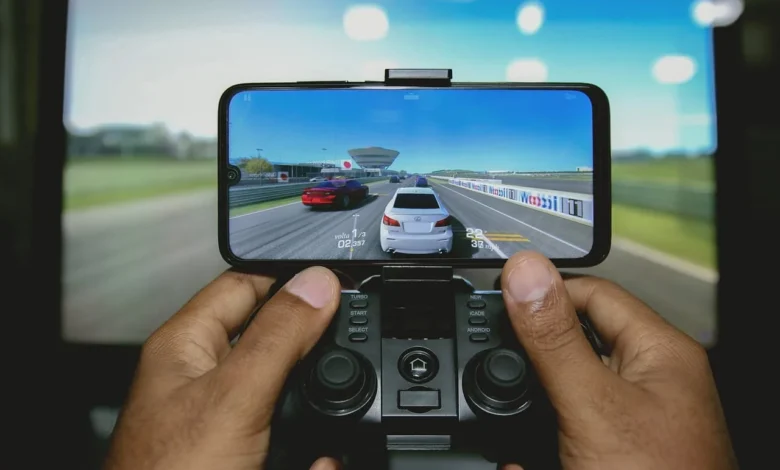
Over the past several years, artificial intelligence (AI) has advanced significantly, powering everything from voice assistants to driverless vehicles. But have you ever questioned how AI becomes so intelligent? The gaming sector has one of the unexpected solutions. It’s true what you just read! The video game business is the ideal training ground for AI.
Abundant Data
Assume you are instructing a little kid on how to ride a bike. Their skills improve as they practice more. AI operates similarly but trains on data rather than riding a motorbike—numerous data. The amount of data produced daily by gaming is enormous. Each decision a player makes in the game environment while interacting with it generates useful data that the AI may use to improve itself.
Think of a game like “Minecraft,” where players construct, explore, and survive. Creating tools or engaging in monster combat produce data that may be utilized to train artificial intelligence. Thanks to this plethora of data, AI systems can better comprehend and mimic human behavior in many circumstances.
Real-Time Feedback
In games, feedback is immediate. When you make a move, you see the consequences right away. This real-time feedback loop is ideal for AI training. It allows algorithms to learn and adapt quickly, like a player improving their skills through trial and error.
For example, ExpressVPN’s blog post shows how AI-powered characters in video games can learn from each encounter, adapting their strategies to become more challenging opponents. This real-time learning can be applied to AI in various domains, from self-driving cars adjusting to changing traffic conditions to AI chatbots providing more accurate responses.
Diverse Environments
Gaming worlds come in all shapes and sizes, from medieval fantasy realms to futuristic cities. This diversity provides a rich training ground for AI. Different games offer distinct challenges, forcing AI to adapt to various scenarios and environments.
AI honed in various gaming settings can be exceptionally good at image recognition and making decisions. For instance, artificial intelligence (AI) developed in a driving simulator can apply its knowledge to real-world situations, assisting autonomous vehicles in navigating challenging urban environments.
Simulated Reality
Games create simulated realities where AI can safely learn and experiment without real-world consequences. This is particularly important in fields like robotics and healthcare, where AI can be trained to perform complex tasks without the risk of damaging equipment or harming patients.
In robotic surgery, for instance, AI can train in a virtual operating room before assisting real surgeons. This reduces the chance of errors and enhances patient safety. Similarly, drones can be trained to navigate through intricate environments in virtual simulations before flying in the real world.
User Behavior Analysis
In multiplayer games, AI can analyze the behavior of human players. This analysis can lead to improved AI-driven opponents that adapt to human strategies, making gameplay more challenging and engaging.
To keep online gaming fair and fun for all players, AI can assist in identifying cheaters or other negative behavior. This capability goes beyond gaming, as AI can be used to spot security flaws or fraudulent activity across a range of industries.
Natural Language Processing
Some games involve complex dialogues and interactions between characters, and this presents an opportunity for AI to improve its natural language processing (NLP) capabilities. Games with branching storylines often require AI to understand and respond to player choices, fostering the development of more sophisticated conversational AI systems.
NLP-trained AI can be applied to customer service chatbots, virtual assistants, and even language translation services, making communication between humans and machines smoother and more natural.
Reinforcement Learning
Reinforcement learning is a subset of AI that learns through trial and error, similar to how players know in games. AI agents can continually apply reinforcement learning to improve their performance in games.
For instance, AI-controlled characters in sports simulations can learn to adapt their strategies based on the opponent’s moves, enhancing the realism of gameplay. This concept can be applied to real-world scenarios, such as optimizing supply chain logistics or managing energy consumption in smart grids.
AI in Game Development
The synergy between AI and the gaming industry goes both ways. Game developers use AI to create more dynamic and immersive gaming experiences. Procedural content generation, for example, employs AI to generate game levels, characters, and landscapes, saving developers time and resources. AI-driven game testing also ensures that games are free from critical bugs and optimized for different hardware configurations, leading to smoother and more enjoyable player experiences.
Contrary to popular belief, the gaming industry plays a bigger role in the training of AI. For AI algorithms to learn, adapt, and succeed in various fields, it offers a perfect playground thanks to its abundance of data, real-time feedback, diverse environments, and simulated realities. How we interact with technology is changing due to AI’s connections to gaming, which span industries like healthcare, robotics, customer service, and game development.
So, the next time you pick up a controller or play a game on your device, remember that you might contribute to the next AI technology breakthrough.





